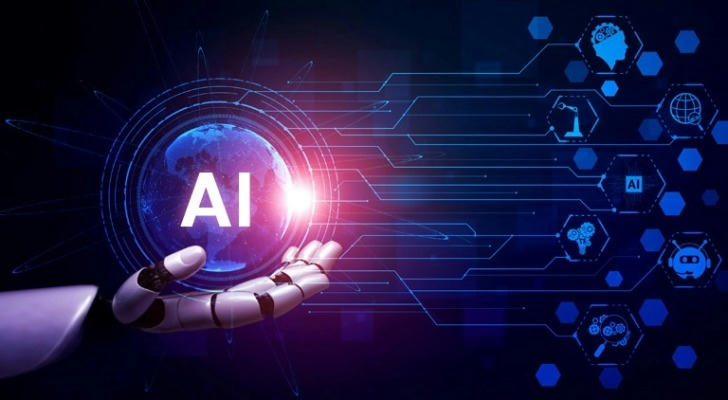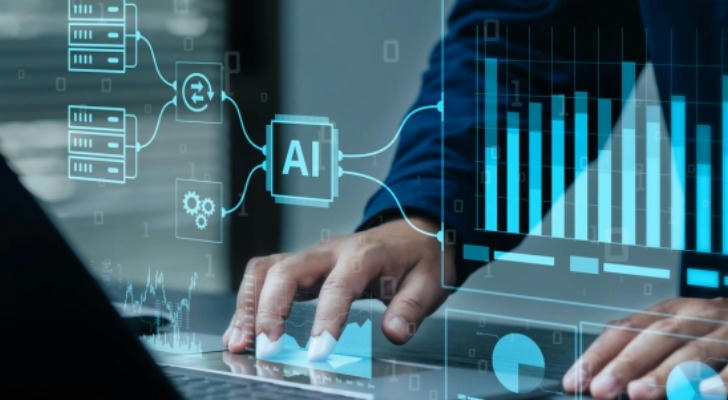The Role of AI in Modern Business: Explained Simply
Artificial Intelligence, often shortened to AI, has become a regular part of everyday conversations in the business world. From chatbots helping answer customer questions to apps that recommend the perfect skincare routine, AI is everywhere. But what does AI actually do in a business setting? And how can understanding it help people make smarter decisions—whether starting a beauty brand, managing a salon, or running an online store?
This article breaks down what AI means in modern business, how it works, and where it shows up in daily operations. It’s written in simple terms and designed to give a clear picture of what AI really does—not just the buzzwords.

What Is AI, Really?
At its core, Artificial Intelligence refers to computer systems that are trained to perform tasks that usually require human thinking. This includes:
- Recognizing patterns
- Understanding language
- Making decisions
- Learning from experience
AI doesn't “think” like a human, but it processes huge amounts of data much faster. That’s what makes it useful in businesses—especially where accuracy, speed, or personalization matters.
Where AI Shows Up in Business
AI can support businesses in several areas, often behind the scenes. Here are some common uses:
1. Customer Service
Many companies now use AI-powered chatbots to answer questions quickly—especially online or through apps. These tools can:
- Provide answers any time of day
- Offer suggestions based on past behavior
- Direct customers to the right place
While not perfect, they reduce wait times and allow human teams to focus on more complex tasks.
2. Marketing and Personalization
AI helps businesses understand what people want. For example:
- E-commerce sites use AI to recommend products
- Email marketing tools use AI to send the right message at the right time
- Social media platforms use AI to decide what content gets shown
According to a McKinsey report, 63% of businesses that adopted AI saw increased revenue in the area of marketing. (Source: McKinsey Global Survey on AI, 2021)
3. Inventory and Supply Chain
AI can help businesses predict what products will be in demand. This is especially important in industries like fashion and beauty, where trends shift quickly. AI tools track sales patterns, weather forecasts, and other data to suggest how much to produce and when to restock.
This kind of forecasting can reduce waste and help avoid overproduction.
4. Hiring and HR
Some businesses use AI to help screen job applicants. These tools can:
- Sort through resumes based on keywords
- Flag potential matches for review
- Reduce human bias when properly trained
Of course, AI should always be used carefully in hiring decisions. It can support—but not replace—human judgment.
5. Finance and Risk Detection
AI can spot unusual patterns in financial transactions. This helps detect fraud and prevent errors. In large companies, AI also assists with budgeting, expense tracking, and financial forecasting.
Real-Life Example: A Beauty Brand Using AI
Imagine a skincare company that wants to offer personalized product suggestions. With AI, it can:

- Collect customer answers to a short quiz
- Match those answers to ingredients that work well together
- Suggest a skincare routine that fits the user’s skin type and lifestyle
This kind of automation saves time, improves accuracy, and makes the customer feel understood.
What AI Cannot Do
Despite all the benefits, AI isn’t magic. It cannot:
- Replace all human jobs
- Understand emotions the way people do
- Work without good data
AI relies on information fed into it. If the data is poor or biased, the results can be too. That’s why businesses still need human oversight, especially in creative or judgment-based roles.
Why It Matters for Small Business Owners
Even small businesses can benefit from AI. Some tools now include AI features built into apps people already use, like:
- Scheduling platforms that recommend best meeting times
- Social media planners that analyze post performance
- Point-of-sale systems that suggest popular restocks
Learning the basics of AI can help business owners:
- Save time
- Improve decision-making
- Create more personalized experiences for customers
A business doesn’t need to hire an entire tech team to take advantage of AI. It starts with knowing what’s available and testing small changes.
How AI Is Changing Work Itself
AI is also changing what work looks like. Routine tasks—like sorting data, tracking expenses, or organizing files—are increasingly being handled by AI. This allows people to focus on the parts of their job that require creativity, empathy, or deep thinking.
In a Deloitte study, 73% of organizations using AI said it helped improve employee satisfaction by reducing repetitive work. (Source: Deloitte State of AI in the Enterprise, 2022)
Common Misunderstandings
There’s a lot of noise around AI, and not all of it is true. Some common myths include:

"AI is going to take every job."
In most cases, AI changes how jobs are done—not whether they exist. Human oversight remains essential."AI knows everything."
AI doesn’t know anything by itself. It depends on what it’s taught."Only big companies can use AI."
Many AI-powered tools are built into everyday platforms. Businesses of any size can start exploring them.
Final Thoughts
AI is already part of modern business—it shows up in ways both big and small. Understanding how it works and where it fits can help people stay ahead in a changing world. For business owners, team leaders, or anyone curious about the future of work, learning about AI doesn’t have to be complicated.
When explained simply, AI becomes less intimidating and more useful. With the right knowledge, it becomes a tool—not a mystery.
Sources:
- McKinsey Global Survey on AI, 2021
- Deloitte State of AI in the Enterprise, 2022
- Harvard Business Review: "Artificial Intelligence Isn’t a Job Killer — Yet"
- IBM: "What is Artificial Intelligence?"
